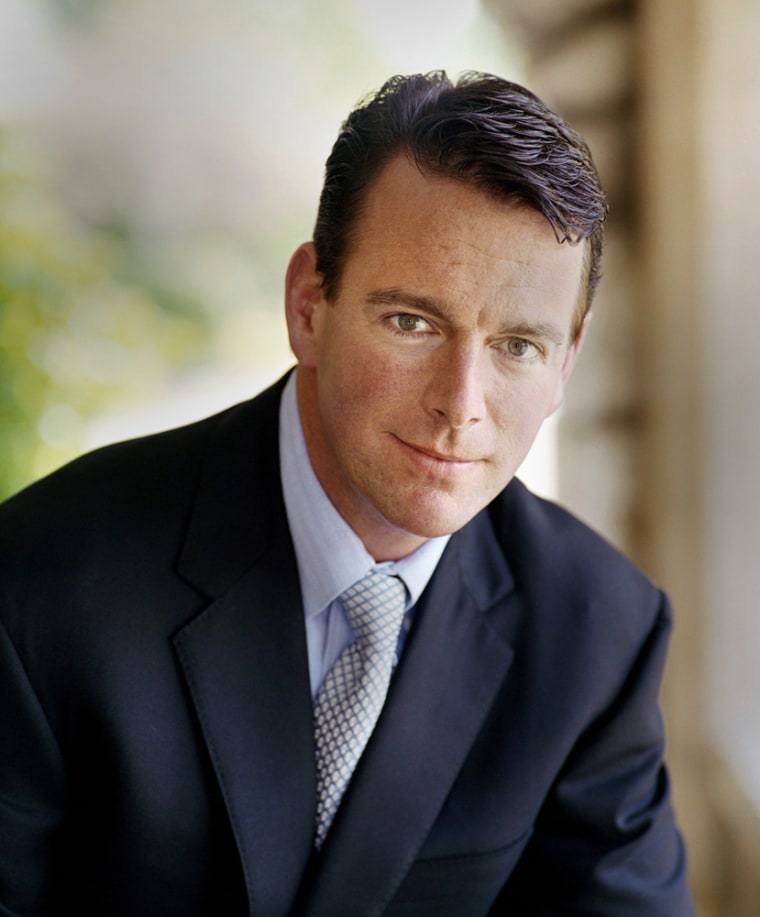It has never been a secret that CEOs get paid big money, but all the little extras that pad their pay — allowances for beer, cash slush funds, home security systems, commuting costs and more — have been hidden from public view.
Not anymore, thanks to new disclosure rules that have forced companies to thrust more of the juicy stuff related to executive compensation into the spotlight when issuing their annual proxy statements.
The result shows lots of excess, some bizarre giveaways and plenty of corporate spin as to why the top brass deserve to get so much. Here are some examples of proxy items deserving special mention:
The 'Shareholders paid for what?' award
To all the companies that had to come clean in their payouts, particularly regarding perks. The new proxy rules require companies to disclose perks that cost more than $10,000, a much lower threshold than the previous requirement of $50,000, or 10 percent of total annual compensation.
Coca-Cola Enterprises Inc. paid out $50,000 to cover the legal costs that its top executive John Brock incurred in negotiating his employment agreement with the company. American Express Co. CEO Kenneth Chenault got $132,019 for the personal use of company cars, and also received payment for snacks from the company dining room and some out-of-pocket medical costs.
Anheuser-Busch Cos. Inc. chief executive August Busch IV got an allowance that paid for beer for personal use and entertaining. Goodyear Tire & Rubber Co. provided CEO Robert J. Keegan with up to two sets of tires per year — and reimbursed him for the taxes on the income associated with that benefit. UST Inc., the holding company for U.S. Smokeless Tobacco Co. and International Wine & Spirits, gave its CEO Vincent Gierer an annual wine allowance.
A new study of 100 companies by The Corporate Library, a governance research group, found that the amounts cited in the proxy statement under "All Other Compensation" — where companies disclose their perks — is an average 130.8 percent higher in the fiscal 2006 filings compared with those for 2005.
The road least traveled award
To Berkshire Hathaway Inc., for its clear cut explanations of executive pay for CEO Warren Buffett and others.
Its "Compensation Disclosure & Analysis," a new section in all proxy statements that is supposed to detail how the board's compensation committee decided on pay, came in at a tight 461 words, about a half page long, noted Mark Borges of Mercer Human Resources Consulting.
That's far shorter and more direct than what has been seen at most other companies — like the nine pages of CD&A at Aetna Inc. and Kellogg Co. and 17 pages at Pfizer Inc.
Securities and Exchange Commission chairman Christopher Cox wants those drawn-out explanations on pay to go. In a speech this month, he reminded those writing the new "CD&A" sections that the SEC doesn't want "overlawyering" in the proxies and encouraged the use of "plain English."
It is also worth noting that the Omaha, Neb.-based Berkshire paid Buffett the same $100,000 he has gotten for the last 25 years. The CEO also reimbursed the company $50,000 in perks. Berkshire's executives don't use company cars nor does the company pay country club dues.
The less is really more award
To Fortune Brands Inc., for cutting perks. Or not. The Deerfield, Ill.-based distributor of Jim Beam, Absolut vodka and golf equipment said in its proxy statement that it would eliminate the auto allowance, financial planning and country club dues it covers for its executives, as of March 31, 2007.
But that money isn't going to be put to better use at the company or returned to shareholders. Instead, executives will just get more cash in their salaries to make up the difference.
The 'Why not call cash cash?' award
To any of the companies touting their "flexible" perks programs. That's really nothing more than an executive slush fund that they can dip into as they please; they don't have to then disclose specifically what the money is going toward.
Among them is Dayton, Ohio-based regional energy and utility company DPL Inc., which is giving each executive a $20,000 allowance to "purchase his or her own perquisites such as financial planning, annual physicals, additional life insurance or disability benefits."
That cash is an additional $20,000 in salary since it is granted at the beginning of the year and executives don't have to do anything to earn it. And it's on top of a long list of other perks given to executives at the company. Among them is the $250,000 in commuting reimbursement to executive chairman Robert Biggs, whose tenure ended June 30, 2006.
"With such a liberal awarding of perquisites, we think the extra $20,000 that DPL hands out is flexing right across the borders of Perk City," said Michelle Leder, whose blog footnoted.org tracks corporate financial filings.
The 'They got the message' award
To Sunoco Inc. CEO John Drosdick, for actually giving up some perks in 2006.
According to Sunoco's recent proxy statement, Drosdick voluntarily returned his company-provided leased car last summer and will no longer get a company vehicle. He still gets a company-provided parking spot, but will pay the company the full market value for it.
The CEO of the Philadelphia-based oil refiner and marketer also eliminated certain company-provided tax payments on personal aircraft use, and paid the full value of the home security monitoring that the company would cover.
Such givebacks should please Sunoco's shareholders, who have watched profits fall _ including a 57 percent drop in the fourth quarter _ and shares lose a quarter of their value over the last year, from highs topping $88 a share in April to around $65 in recent days.
